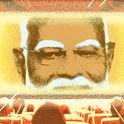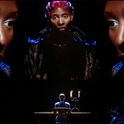Two films that didn't fare too well in yesterday's Oscar nominations were American Gangster, Ridley Scott's terrific thriller about drugs dealing in late 1960s/early 1970s Harlem, and Charlie Wilson's War, directed by Mike Nichols and written by Aaron Sorkin, a clever film about the twists and turns of US policy in Afghanistan during the end of the cold war.
What the films have in common is big names. Big name directors and big stars: Denzel Washington and Russell Crowe fight it out in Harlem, and Tom Hanks, Julia Roberts and Philip Seymour Hoffman take on the Soviets. And this, the cynic might feel, is exactly their problem. American Gangster needed big names to make the kind of big film that would pull in the crowds, and Charlie Wilson needed big names to get made at all—a clever, wordy and very liberal critique of US foreign policy in Afghanistan won't get made unless there's a couple of stars at the top of the credits.
But that's where the problems start because stars bring their own baggage. Denzel Washington has to be the nicest drug-dealing gangster since those nice guys in The Godfather. He doesn't swear, he goes to church, he's nice to his mother and to his wife and apart from the occasional shooting (and burning) he's the kind of gangster you could take home to mom. He even dresses smartly. At the end (and don't read this if you haven't seen the film) he's positively avuncular, with that cute, white-teethed smile and those granny glasses. Well, of course. He's played by Denzel Washington. And Denzel doesn't want to play some psychopathic thug out of Tarantino or the Coen brothers. Nor does his agent. After all, one day he's going to play those cutesy black parts that Morgan Freeman plays now. So cue granny glasses and cute smile. Screw realism. That's part of the film's problem. The other is its sensitivity over the "n" word. Only Tarantino's gangsters call anyone "nigger." Can you imagine a film about a black gangster in New York, where the word "nigger" is used just once? Everyone tiptoes around race because we're in the PC years, even though the film is set 30 years ago.
Charlie Wilson has the same problem. The film is one of the most schizophrenic ever made. On the one hand, it wants to make a clever liberal critique of US involvement in Iraq and Afghanistan. Of course, it's a mess, it wants to say, look how we got into it all back in the Reagan years with some Republican bozo who likes screwing around, taking drugs (but only in the Cayman Islands, apparently) and doesn't even know that Muslims don't drink alchohol. On the other hand, this bozo is played by Tom Hanks, so he's got to be quite smart, not too Christian and very nice, in the way that Republican bozos from Texas who screw around and take drugs usually are. So he's not at all like those nasty Republicans who supported the Contras and right-wing terrorists in El Salvador. Charlie Wilson is cute and funny, the kind of Texan Republican you could take home to mom. After all, Tom Hanks is Mr Nice Guy. The nasty face of Republicanism we'll leave to the Brits, Antony Hopkins's Nixon or Gary Oldman's McCarthyite committee chairman.
The problem is that in order to make Denzel and Tom looking sweet as roses, big chunks of the films' rationale goes out of the window. The Coen brothers don't have this sort of problem because they tend to avoid big-name stars and go for first-rate character actors like John Goodman, William Macy, Tommy Lee Jones and the amazing Javier Bardem. If they want psychopaths, Bardem gives them psychopaths. If they want trailer trash, Josh Brolin (first-rate in American Gangster, too) gives them trailer trash. Not a pair of granny glasses in sight. But there is a God—who's going to be skipping along the red carpets on Oscar night? Not Denzel or Tom, but Javier and Tommy Lee Jones (though for In The Valley of Elah, not the Coen brothers' slaughter-fest), Philip Seymour Hoffman and Tilda Swinton (in one of the least vain performances ever, where she bares all for the sake of character). Are stars worth it? The answer seems to be increasingly no.
The Oscars revisited—the trouble with stars
January 23, 2008












